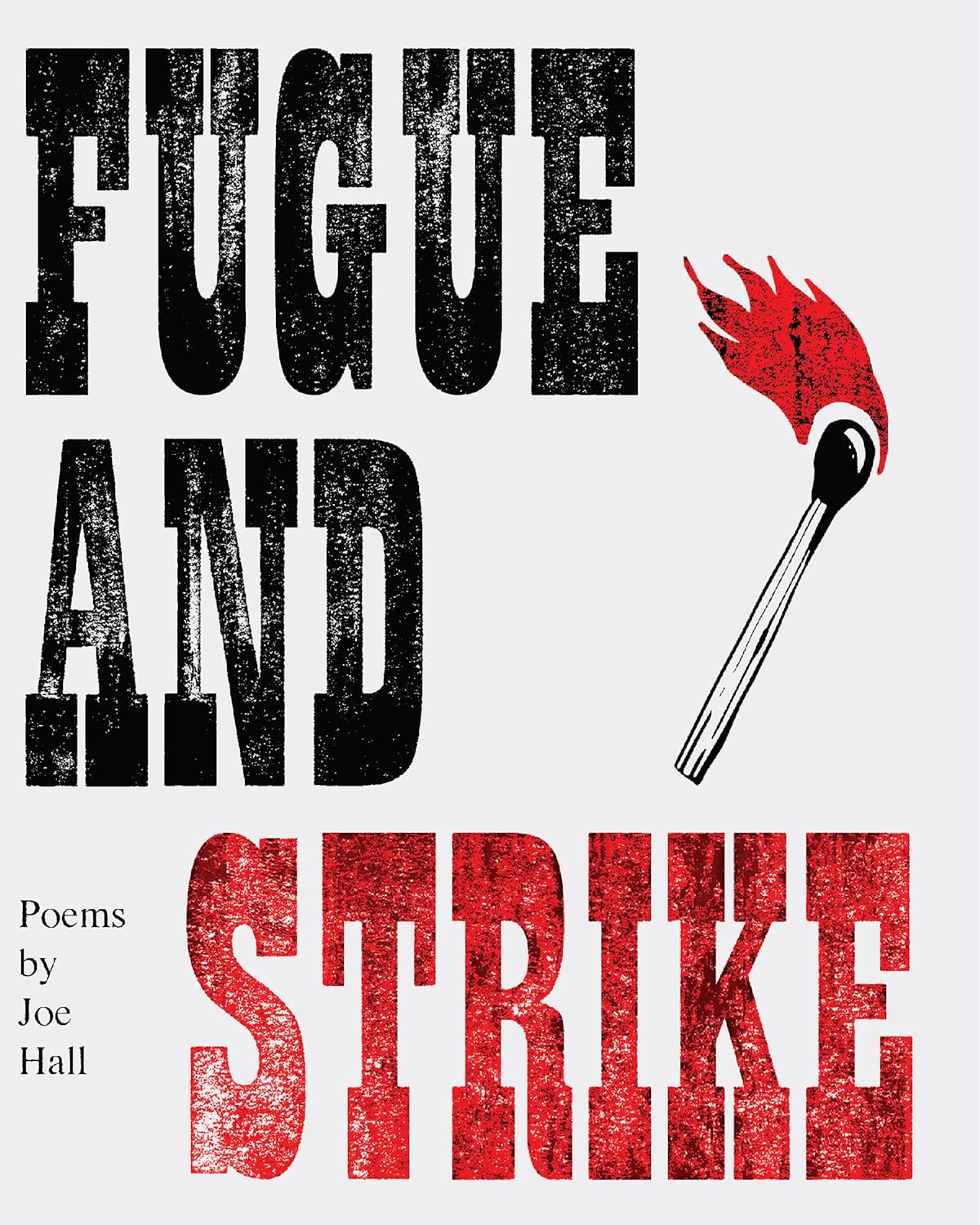Joe Hall
Black Ocean ($17)
by Greg Bem
The grotesque yet inquisitive poetry of Joe Hall returns to the limelight in Fugue and Strike. The book has six sections and opens with a short sequence, “From People Finder Buffalo”; its vital poems on the economy and police violence instill in the reader a sense of the core protections of the structures that impose upon our communities and threaten our collective livelihood.
Fugue and Strike bursts from the seams through its two largest sections, where Hall brings together distinct series of poems that tackle one large theme: labor. The first, “From Fugue & Fugue,” falls in the lucid tracks of other serial works like John Berryman’s The Dream Songs and Ezra Pound’s The Cantos, where Hall’s distinctive, deranged, and blunt imagery centers the whirlwind lives of the American working class. The poems in this sequence are some of Hall’s most experimental, their language derivative of both machine-like repetition and the manic bracing of daily stress:
I consider debt, each word, each poem
an easter egg, w/absence inside and inside absence
you are hunger, breathing this time and value
particularized into mist, you are there, at the end
of another shift
Following the fugues, the hypnotic and didactic series “Garbage Strike” sheds light on the history of sanitation worker strikes from the 1600s to the present. Across international cities including New York City, Oaxaca, Buffalo, Tokyo, and Memphis, Hall’s poems dig deep into the folds of garbage, trash, refuse, and output on a massive scale. These are stories of people deserving of the spotlight, of ecosystems of everyday life. Hall highlights the work of society’s perceived lowest working classes, those the systems want invisible or forgotten:
I want the history of lurching waste flows and accumulation, the labor of carriage and decomposition, the production of intensified difference and hierarchy among workers, and the rebellions of those laborers: Mudlarks; dirt-carters; loaders of horse-corpse barges, dung ships, and containerships; workers in ship-breaking yards; emotional garbage sorters and haulers. What if it was a celebrated labor? To disassemble the titans.
The book closes with a cluster of three standalone poems, “I Hate That You Died,” “The Wound,” and “Polymer Meteor”; each confronts loss separately while getting to catharsis collectively. In the final poem, Hall closes the book with statements on rigorous criticism, outreach towards sustainability, and our persistence through cycles of production:
Given that we, flesh, are affiliated with so many polymer immortals, I would like to suggest we imagine future time as present weight in order to see the world. If long after our bodies die, the case of a cell phone lives on into the thousands of years, its mass multiplied by (all that) time, would be unliftable. It would break your floors.
Like the contemporary American working-class poetry of Ryan Eckes, Robert Mittenthal, and Tim Greenup, the poems in Fugue and Strike foster a sense of irony combining labor and solidarity. Hall may not be overtly Marxist in his words, but he consistently throws punches against capitalism. His tones are derived from a spectrum of monotony and crisis with speakers engaging in moments of reflection amidst toil, explosions, brutal reckonings, and epiphanies.
As his fourth full-length collection, Fugue and Strike feels more mature than Hall’s previous releases; form across the collection feels neatly fitted despite the sprawling subject matter. Balancing personal stories with historic retellings, the book bears an academic level of research and contains an extensive bibliography. Coming out of a world of education and pedagogy, this poetry may serve for many as a kaleidoscopic keystone into the relentlessness of work, the void of commodification, the hope of solidarity, and the necessity of revolt.
Click below to purchase this book through Bookshop and support your local independent bookstore:
Rain Taxi Online Edition Spring 2024 | © Rain Taxi, Inc. 2024

